Looking at Us
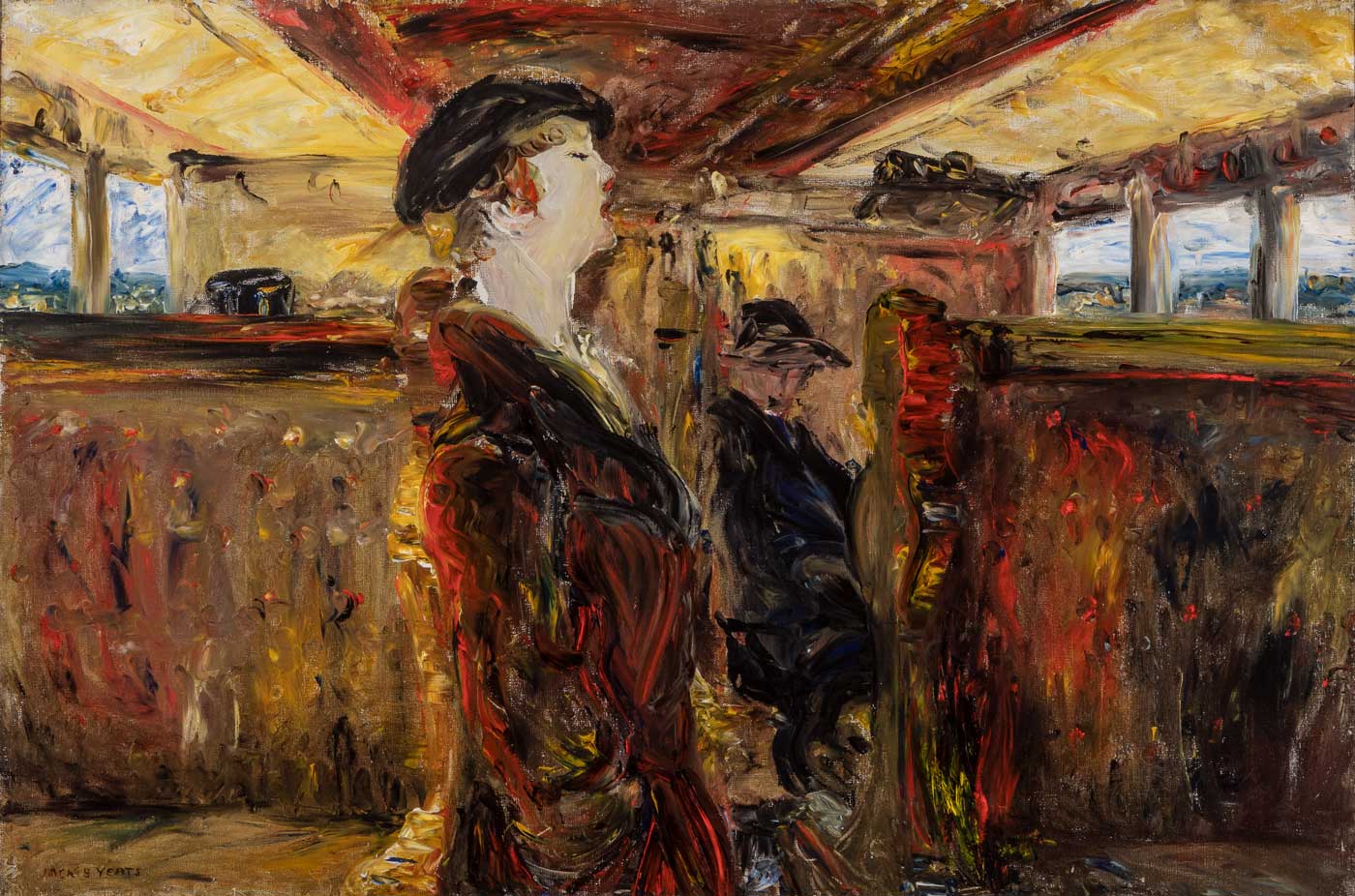
Original artist
Jack B. Yeats
Original art
Singing, “Oh, Had I the Wings of a Swallow”
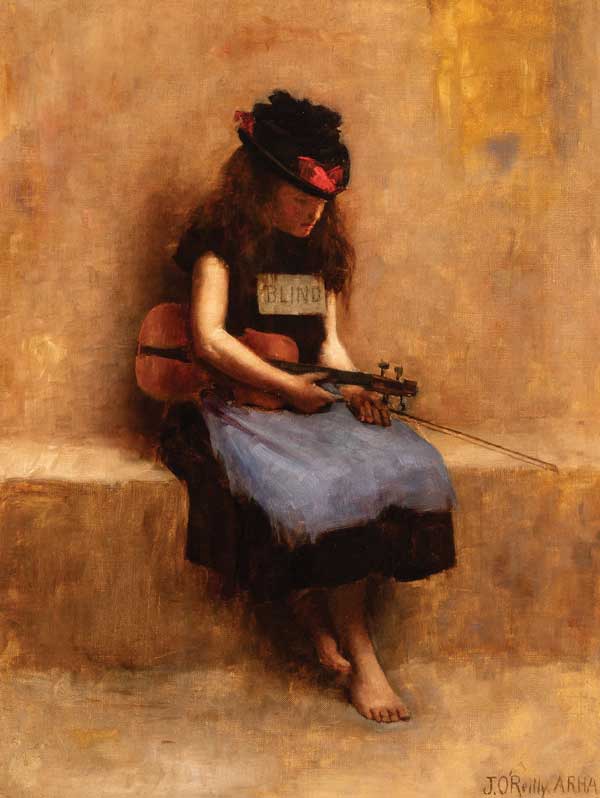
Original artist
Joseph O’Reilly
Original art
The Blind Fiddler
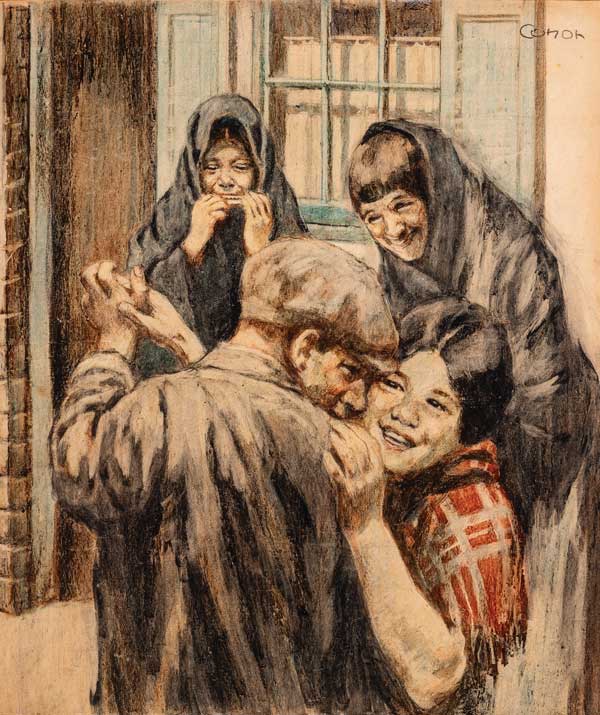
Original artist
William Conor
Original art
The Street Dance (a.k.a. Eleventh Night)
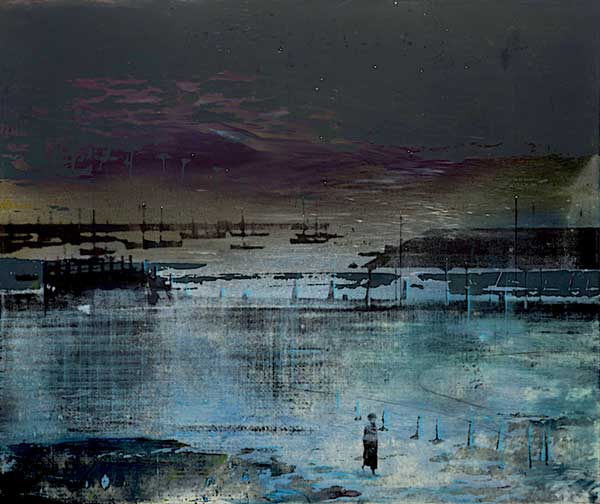
Original artist
Elizabeth Magill
Original art
Harbour (Dun Laoghaire)
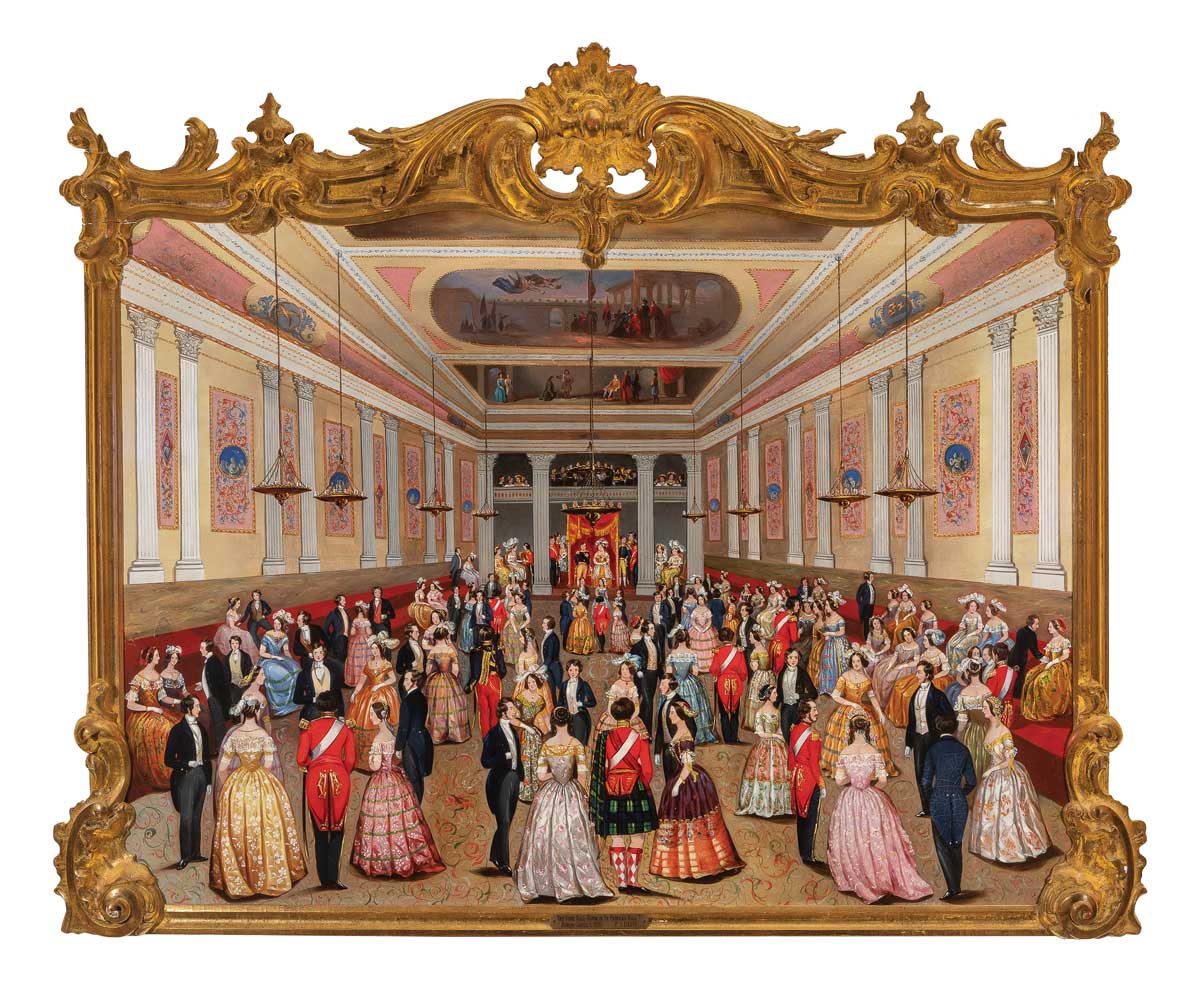
Original artist
F J Davis
Original art
The State Ballroom, St. Patrick’s Hall, Dublin Castle
Looking at us.
by Evelyn Conlon with Fintan Vallely
I’ve been told, on a visit to Dublin, that at night when the minders have gone, after the sun has dropped down, winking as it goes, wiping out daylight, after the visitors have walked out the doors dazed with thoughts of what they’ve seen, whispers are heard as some of us get ready to speak. When the evening has been folded up it’s then that the astute can notice the change – silvery little rustles, not yet committed. I say silver because I see colour in sounds. For those who think this conversation unlikely, remember that stones speak to quarry men, wood speaks to carpenters and clocks tell all people what they have to do next.
Obviously some will be more reticent than others, not only because their very function is to serve silently, but because their make up, the manners in which they have been clothed, means they have no time for tittle tattle, do not know how to take the weight off their hip frames and let it happen; they may indeed be afraid to throw themselves into the dangerous slipstream of talk.
Once I heard of this night-time chatter, I thought of you and how I would tell you when I got back to our house, because I knew the to and fro of the talk would suit us – us who, with the playing and the saying of our notes, have already overcome uncertainty. The bird which flew past you just now brought me news back that you are listening. I’m glad of that, we are, after all, cut from the same cloth, know that music paints the best bolt hole.
Because you cannot see me I will explain how I have been translated by my painter, because that is indeed what happens us. Our explicators get to decide what they want to draw attention to – it might be the colour of us, or what we’re at precisely then, or what we normally do, or what we’re like when we roll out of sleep. He caught me mid song, passing through Kildare, a county I like well enough for its history. I remember that day, remember humming my way into the first line, getting the feel of how the carriage created its echo, the way sound changes when someone is listening (I would not like to be forced to sing to an empty room). The throat of me got into one with the song, put into the notes what I know about love and longing, silencing the passengers. The listeners cocked their ears and looked as if they might learn something that would help them live, if only they could get near the loneliness of the words. Some turned their eyes away from the pining in it, in case they drowned in sorrow. At the finish they all held a silence, to allow the notes fade away, before applauding. The clap helped to shake the words off them.
While I was seen that way, you are between tunes, pensive and resting, waiting to begin again. You appear to be thinking your thoughts, sighing your sighs or, because of a tune you hear, feeling a light you cannot see. You look as if you are handing us a parcel of interim silence, passing it on to be caressed, surprising us, because it holds all the hidden meaning of you. Or maybe you have felt our Dún Laoghaire woman pass by after her walk down to the sea. Now there’s a one who knows how to wear mystery, make us wonder what has just happened, what she has thought about the longing the ocean fills us with, for what we may not know. What has she turned her back on, what is she walking towards, is something about to happen or has she blessedly caught a moment for the jewel of solitude, to be herself, look indeed like you do? Have you felt some of the drift of her?
You can tell me next time, if you want, put me right perhaps about the stray thoughts you have gathered, the gems you have heard from the people passing by you, those out buying song-sheets or poetry to go with their day. And maybe we’ll try a note in harmony, a tune to lift, make a session of it, give those dancers something to keep time with. I’m sure that pair would love it, it would go with the great joy they’ve just foreseen in the swing of themselves. I imagine that a competent caller may have shouted out the notes, from the State Ballroom, even though I know that’s fanciful, even though I know the times don’t fit. We’re allowed that – if stone can talk to quarry men and people throw themselves on the surf of notes, we too are allowed to imagine things that are not possible. I have known of this calling when the poor outside could not afford the band, so I can do what I will with what I know. Sleep well now until morning, remember that the swallow in my song can fly at night, that swifts can sleep as they move and that no-one can order the style of our dreams. Here’s looking at us.
JB Yeats. Singing, ‘Oh, had I the wings of a Swallow’
Joseph O’Reilly. The Blind Fiddler
William Conor. The Street Dance
FJ Davis. The State Ballroom, St. Patrick’s Hall , Dublin Castle
Elizabeth Magill. Harbour (Dún Laoghaire)
Lines on singing from Not the Same Sky, Evelyn Conlon